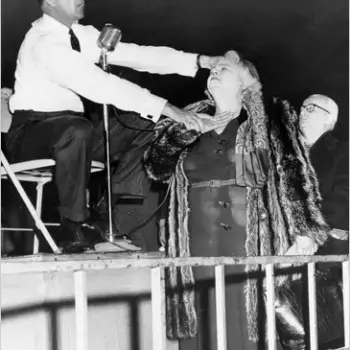In the second in Mission Work’s series on a Lutheran perspective on faith & work, Rev. Adam Roe offers a post entitled No super-Christians. He discusses Luther’s reaction against the view that those who want to be particularly spiritual–“super-Christians”–would become monks, nuns, or priests. These were considered callings from God–“vocations”–while lay occupations were not.
I would add that the specific way that a person became a “super-Christian” contributed to the problem: A person who sought to become “religious” took–and still takes–vows.
The vow of celibacy repudiated not just sex but marriage and parenthood. The vow of poverty repudiated economic activity, except for the collective enterprises of the church. The vow of obedience meant in Luther’s time that the “religious” person need obey only the church hierarchy and not secular governments, whose jurisdiction applied only to denizens of “the world.”












